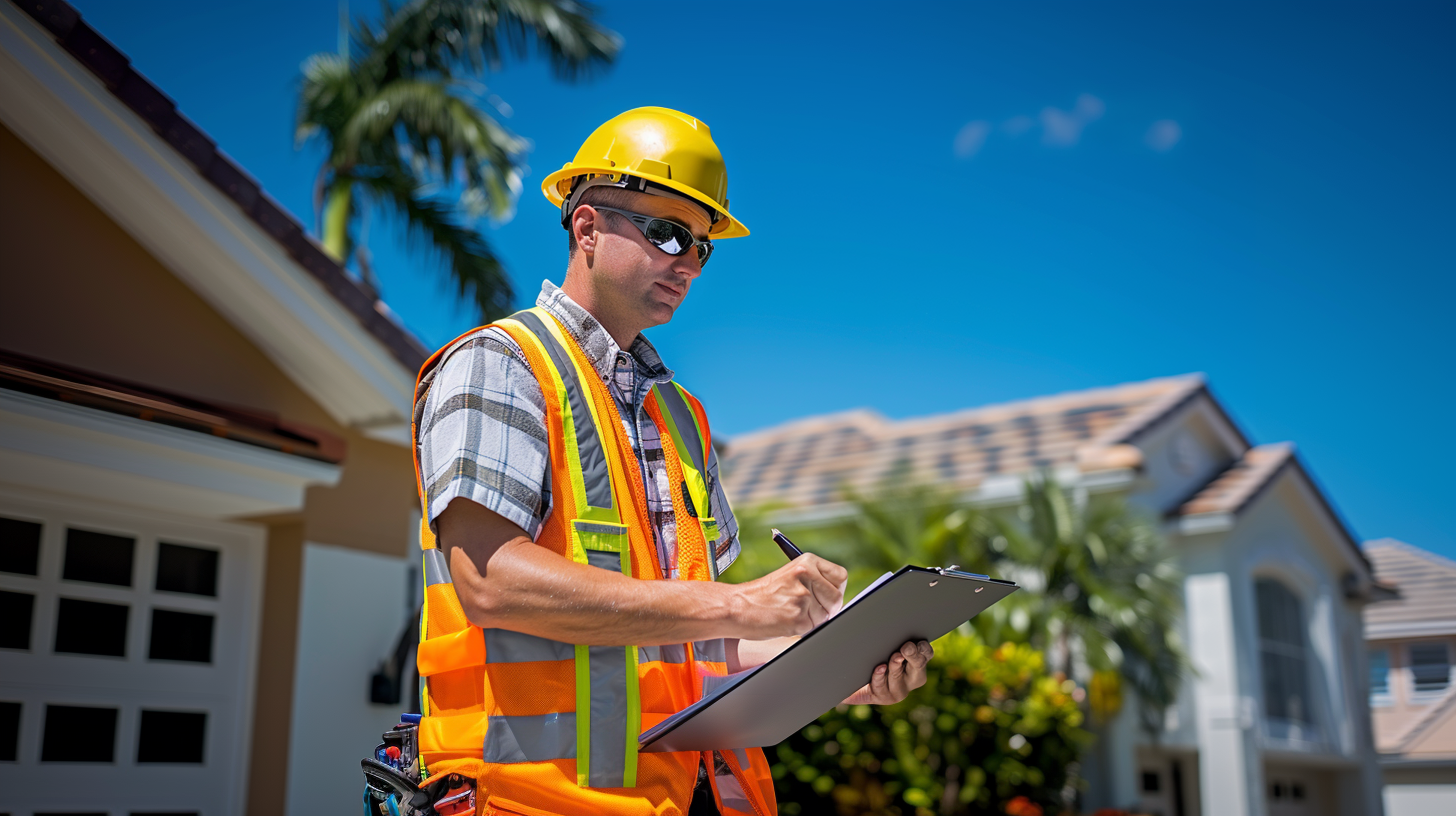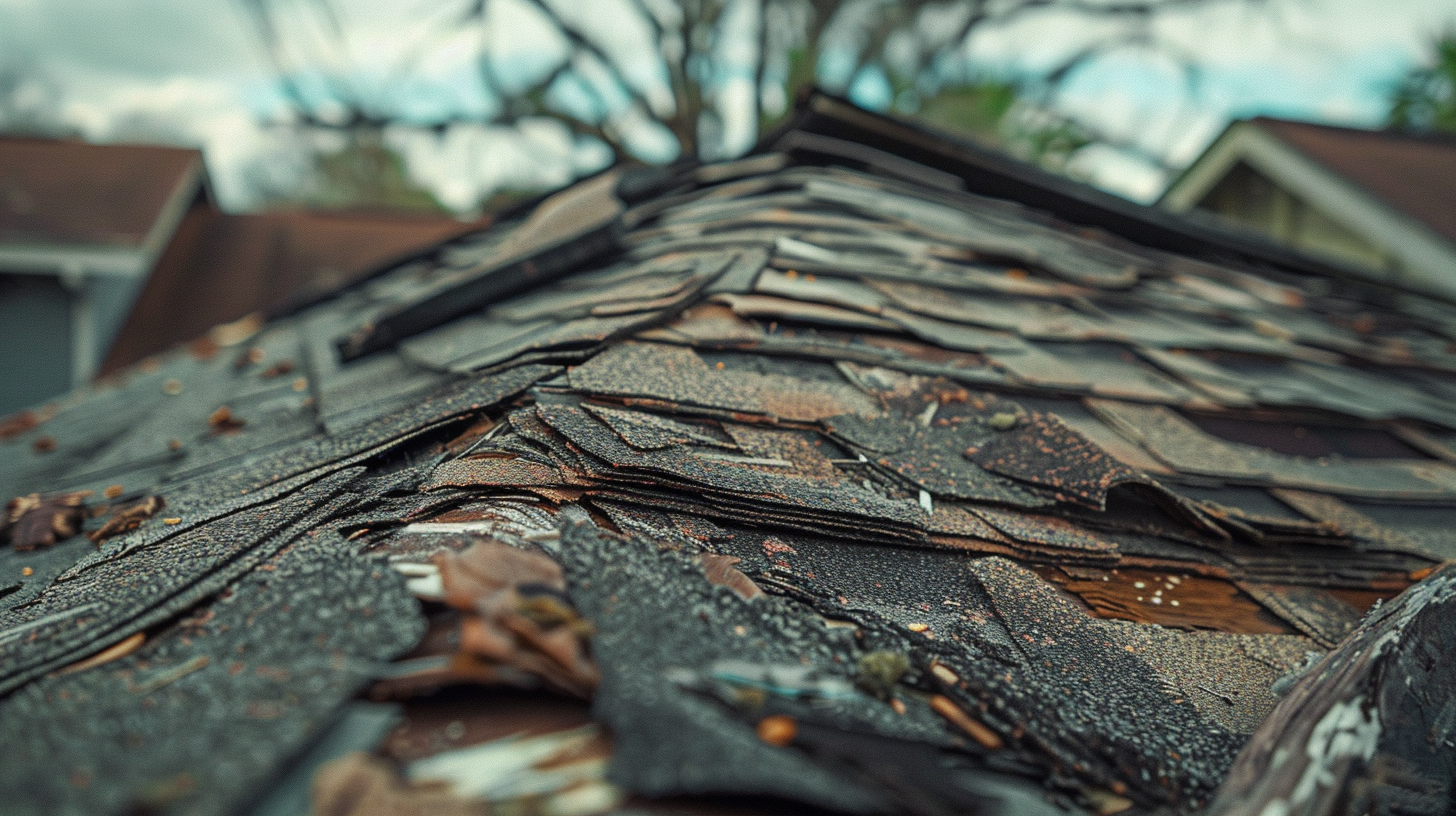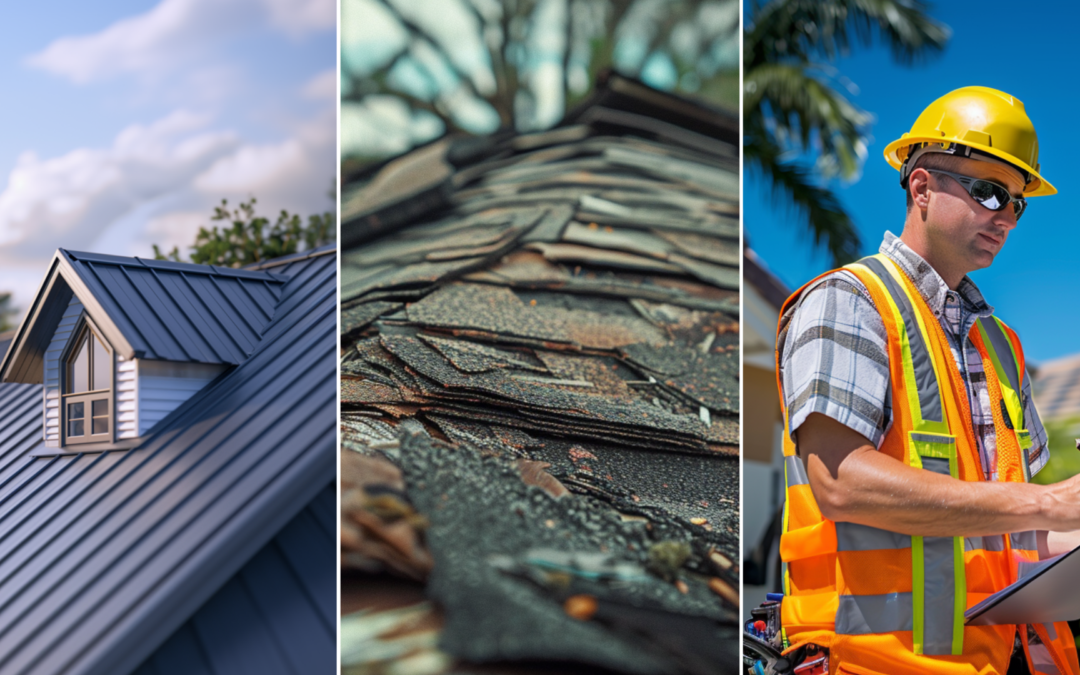Understanding Additional Fees in Roofing
Additional fees in the roofing industry are standard and are typically charged to provide specific services or benefits to customers. These extra fees, such as the average cost, roof pitch, and flat roofs, can vary depending on the project’s scope and the customer’s specific needs, including the roof replacement cost and average roof replacement cost. While these fees may seem like an extra expense, they often have advantages and benefits that can enhance the overall roofing experience, including concrete tiles. Customers need to understand these additional fees to make informed decisions and ensure the success of their roofing project.
How to Identify and Avoid Hidden Roofing Costs
Regarding roofing projects, you must consider more than just the initial cost. Hidden costs can quickly add up and catch you by surprise. Identifying and avoiding these hidden roofing costs is crucial to ensuring your project stays within budget.
One standard hidden cost in the roofing industry is the cost of additional materials. While the initial estimate may include the basic materials needed for your roof, unforeseen circumstances often require extra materials. For example, if your roof has extensive damage or there are specific requirements due to local building codes, you may need additional materials not initially accounted for. To avoid this hidden cost, it is essential to thoroughly inspect your roof and communicate any potential issues to your roofing contractor before the project begins.
Another hidden cost to watch out for is the cost of permits and inspections. Depending on where you live, specific permits and inspections may be required for roofing projects. These additional fees can quickly add up and should be factored into your budget. Researching and understanding your area’s requirements is crucial to avoid surprises.
Labor costs can also contribute to hidden roofing costs. The initial estimate may include the labor cost for a primary roofing job, but complications or unforeseen circumstances can result in additional labor charges. For example, if your roof has multiple layers that need to be removed or structural issues need to be addressed, the labor required will increase, and so will the cost. To avoid this hidden cost, thoroughly discuss any potential complications during the project with your roofing contractor.
Lastly, pay attention to the cost of waste disposal. Roofing projects generate significant waste, including old shingles, debris, and packaging materials. You may need to rent a dumpster or hire a waste removal service to dispose of this waste properly. When budgeting for a roofing project, these fees can often be overlooked, so it’s important to factor them in from the beginning.

Additional Fees - Inspection and Permit Fees - Sky Roofing Construction & Remodeling
Inspection and Permit Fees
In the roofing industry, homeowners or businesses may encounter additional fees when undertaking construction or remodeling projects, such as roof replacement costs. Two standard fees are inspection and permit fees, which are essential for ensuring that roofing projects, including asphalt shingles, minor repairs, and steep roofs, meet safety standards and local regulations. Understanding these fees, including the type of roofing material and roof cost, can help individuals make informed decisions and ensure the completion of their roofing projects, whether they involve the entire roof or specific areas.
Roof Inspection Charges
Roof inspection charges, including those for roof leaks, roof decks, repairs, roof size, roof installation, and roof slopes, are a significant investment in the overall welfare of your property. While they may seem unwelcome initially, it’s crucial to recognize their numerous benefits and advantages. Let’s delve into why these additional fees are worth every penny.
First and foremost, roof inspections grant you peace of mind. Trained professionals inspect every nook and cranny of your roof, identifying any lurking issues that may go unnoticed to the untrained eye, such as loose shingles, damaged flashing, or signs of water infiltration. These inspections unveil potential problems that, if left unattended, could escalate into primary headaches and costly repairs. Addressing these issues promptly ensures your safety and saves you from the financial burden of more extensive repairs.
But the benefits continue beyond there. Regular roof inspections can significantly extend the lifespan of your roof. With proper maintenance, even the most durable roofing material will deteriorate over time due to exposure to harsh weather conditions. A professional inspection allows experts to assess the overall condition of your roof and identify weak points that may require immediate attention. By addressing minor issues early on, you prevent them from progressing into more significant problems that can shorten the lifespan of your roof and result in premature replacement.
Furthermore, timely inspections can help you maximize your homeowner’s insurance policy. Many insurance companies require proof of regular roof inspections to maintain coverage. By adhering to these requirements, you not only fulfill your obligations as a policyholder but also demonstrate your commitment to the upkeep of your property. In the event of a claim, having documented proof of regular inspections can speed up the process and ensure a smoother resolution.
Another advantage of roof inspections is their effectiveness in preventing energy loss. A compromised roof can lead to air leakage, making it challenging to maintain a comfortable indoor temperature and increasing energy bills. By conducting regular inspections, professionals can detect any areas of energy loss and recommend appropriate insulation or repairs, helping you save money in the long run by reducing your energy consumption.
Building Permit Costs
Several factors must be considered when undertaking a construction project, whether a roofing installation or a complete remodeling endeavor. One crucial aspect that often goes unnoticed is the acquisition of building permits. Although building permit costs seem unnecessary, they play a vital role in ensuring a solid foundation and a successful outcome for your project.
What are building permits? Building permits are official documents granted by local authorities that allow individuals or businesses to carry out construction or renovation projects. These permits prove the project complies with safety regulations, building codes, and zoning laws. Obtaining a building permit involves submitting plans, paying fees, and undergoing inspections.
Building permit costs can vary depending on the type and scope of the project. While some may perceive these fees as unnecessary, they have various benefits and advantages. Let’s explore why these additional fees are essential:
1. Legal Compliance: Building permits ensure your project complies with local building codes and regulations. Relying on professional architects, engineers, and contractors to obtain the necessary permits guarantees that your construction will meet the required standards, safeguarding the structural integrity and safety of the building.
2. Accountability and Quality: The permit process involves inspections from local authorities to ensure that the construction adheres to the approved plans and meets safety standards. These periodic visits ensure accountability and high quality for your project.
3. Protection for Homeowners: Building permits protect homeowners by ensuring contractors working on their property are licensed, insured, and qualified to perform the required work. They also give homeowners recourse in case of disputes or unexpected issues during construction.
4. Increase Property Value: Properties with legally approved construction projects tend to have higher market values. This is particularly beneficial if you plan on selling your property in the future, as potential buyers are assured that the construction was completed according to regulations.
5. Future Convenience: Obtaining a building permit also allows for future modifications or expansions of your property. Having the necessary documentation readily available can streamline the process and save time and money when undertaking further construction projects.
Despite these clear advantages, it is essential to note that cutting corners by avoiding building permit costs can have severe consequences. Failure to acquire the necessary permits can result in fines, stop-work orders, and even legal ramifications. Moreover, insurance companies may refuse to cover any damages or accidents if they discover that the construction was carried out without proper permits.

Additional Fees - Roof Material Delivery and Disposal Costs - Sky Roofing Construction & Remodeling
Roof Material Delivery and Disposal Costs
Roof material delivery and disposal costs, including roofing experts, additional costs, extra costs, composite shingles, clay tiles, roof structure, metal roofs, roof design, and standard roofing materials. When undertaking a roofing project, one of the additional fees to consider is roof material delivery and disposal costs. These expenses are crucial and indispensable for ensuring the smooth execution and completion of any roofing construction or remodeling project. Roof material delivery costs include transporting the necessary materials to the project site, such as shingles, tiles, or metal sheets. On the other hand, disposal costs involve the proper removal and disposal of old or damaged roof materials. While these costs may seem like an extra burden, they have significant benefits and advantages. Proper material delivery ensures the availability of necessary supplies on time, minimizing construction delays. Additionally, the efficient disposal of old materials promotes a safer and cleaner work environment. Ultimately, considering these additional fees is essential in guaranteeing the success and quality of any roofing project.
Transportation Fees for Roofing Materials
Regarding roofing projects, one crucial aspect often overlooked is the transportation of materials. While the focus is primarily on selecting suitable materials such as wood shingles, wood shakes, steel shingles, copper tiles, and tile roofs and finding skilled contractors, the logistics of delivering these materials to the job site deserve equal attention. This is where transportation fees for roofing materials, including types of roofing materials such as wood shingles, wood shakes, steel shingles, copper tiles, and tile roofs, come into play, as they ensure efficiency and reliability in the roofing industry.
Roofing materials are bulky and delicate, such as wood shingles, wood shakes, steel shingles, copper tiles, tile roofs, tiles, insulation, and other supplies. They require proper handling and careful transportation to avoid damages and delays. This is especially true when considering the ever-changing weather conditions and the need to transport materials from suppliers to various job sites, including larger roofs.
Transportation fees, including transportation fees for wood shingles, wood shakes, steel shingles, copper tiles, and tile roofs, are valuable to guarantee that roofing materials are delivered on time and in optimal condition, including average price. These additional charges cover various aspects, such as fuel costs, vehicle maintenance, insurance, and skilled drivers, which may also involve curb appeal and special equipment. By allocating specific funds toward transportation, roofing companies can ensure the timely completion of projects and minimize potential setbacks.
One of the primary advantages of transportation fees is the ability to choose reliable carriers or shipping companies, including improvement projects. Experienced service providers, including those with access to special equipment, understand the delicate nature of roofing materials and have the necessary equipment to handle them safely, including tile roofs. They prioritize safety protocols, providing peace of mind to both contractors and customers.
By paying transportation fees, roofing companies, including those specializing in steel shingles, copper tiles, and tile roofs, also gain access to appropriate vehicles specifically designed for delivering roofing materials. These trucks or vans have special loading ramps, securing mechanisms, and weatherproof covers to protect the materials during transit, including the average price. This specialized equipment helps to prevent any damage caused by vibrations, impacts, or adverse weather conditions, including curb appeal.
Furthermore, transportation fees, including larger roofs and special equipment, contribute to the efficiency of roofing projects, including improvement projects. They eliminate the need for contractors to invest in their transportation infrastructure, reducing upfront costs and allowing them to focus on their core expertise – delivering high-quality roofing services, including average price. Additionally, professional carriers are adept at optimizing routes, ensuring that materials are delivered cost-effectively and timelessly.
Disposal Charges for Old Roofing Materials
When it comes to roofing projects, one aspect that often gets overlooked is the disposal of old roofing materials. Many homeowners may need to realize that the removal and disposal of these materials come with additional fees. However, understanding these disposal charges can ultimately save you time, effort, and money in the long run.
Disposal charges for old roofing materials are essential to any roofing project. After all, when a new roof is installed, the old materials must be appropriately disposed of to make room for the new ones. These old materials can include shingles, tiles, or any other roofing components that are being replaced.
Disposing old roofing materials involves more than just dropping them off at the local landfill. Professional roofing companies understand the importance of environmentally friendly practices and strive to dispose of these materials responsibly. This often involves sorting the materials and recycling them whenever possible.
The additional fees associated with disposing of old roofing materials cover the cost of transportation, sorting, and recycling. While these fees may vary depending on the size and location of the project, it’s essential to consider them as part of the overall cost when budgeting for your roofing project.
Some homeowners may question the necessity of these additional fees. However, understanding and accepting these charges has several benefits and advantages. By paying for properly disposing of old roofing materials, you can contribute to more sustainable practices and help reduce waste.
Furthermore, professional roofing companies have the knowledge, experience, and equipment to remove and dispose of these materials safely. They understand the hazards of old roofing materials, such as asbestos or other harmful substances. Hiring a professional ensures that these materials are handled carefully, protecting you and the environment.
In addition, by choosing a roofing company that includes disposal charges in their services, you can save yourself the hassle and stress of trying to dispose of these materials on your own. The roofing professionals will take care of the entire process, allowing you to focus on other essential aspects of your roofing project.

Additional Fees - Unexpected Repair Charges - Sky Roofing Construction & Remodeling
Unexpected Repair Charges
When it comes to the roofing industry, homeowners or property owners might face unexpected repair charges due to various factors such as extreme weather conditions, age-related issues, or neglected maintenance, including common roof repairs. These unforeseen repair costs, including cost of roof repair, claim for roof damage, clay tile roofs, common roof repairs, current roof, extent of roof damage, and partial roof replacement, can often catch individuals off guard and disrupt their budgeting plans. By understanding the potential financial implications involved, individuals can make informed decisions and take proactive measures to mitigate the impact of unexpected repair charges, including cost of roof repair, claim for roof damage, clay tile roofs, common roof repairs, current roof, extent of roof damage, and partial roof replacement, on their roofing systems.
Structural Roof Damage Remediation Costs
Only some things are as crucial as promptly identifying and addressing structural damage when maintaining a reliable and sturdy roof. Roof damage can arise from various factors, such as severe weather conditions, age, or improper maintenance. However, the good news is that solutions are available to remediate such issues and restore the integrity of your roof. While it is essential to understand the potential costs associated with these remedies, it is equally important to recognize the long-term benefits they provide.
Structural roof damage remediation costs primarily depend on the problem’s extent and the repair work’s complexity. In some cases, superficial issues like minor leaks or cracks can be resolved by simple patching or sealing, which typically incurs lower costs. However, a comprehensive remediation process is necessary when the damage is more severe, such as sagging rooflines or compromised beams.
One of the most significant advantages of investing in structural roof damage remediation is its safety assurance. A compromised roof can pose severe risks to the occupants and the overall structure of the building. By promptly addressing and repairing structural damage, you can mitigate potential hazards, ensuring the safety of everyone within the premises. This preventive approach eliminates the chances of accidents, collapsed roofs, or water leaks that could lead to further damage or even endanger lives.
Furthermore, structural roof damage remediation offers long-term benefits far outweigh the initial costs. By proactively addressing these issues, you enhance the lifespan of your roof, thus delaying the need for costly roof replacements. Neglecting structural damage can lead to exponential deterioration, possibly rendering your roof beyond repair. Regular inspections and timely maintenance preserve the structural integrity of your roof and contribute to the overall longevity of the entire roofing system.
When considering the costs associated with structural roof damage remediation, it is crucial to acknowledge the expertise and skill required to complete these tasks effectively. Hiring professional roofing contractors specialized in structural repairs guarantees a high-quality outcome while minimizing the risk of further damage. These experts possess the necessary knowledge, experience, and tools to accurately assess the extent of the damage and provide a tailored remediation plan that meets your specific needs.
Unforeseen Water Damage Repairs in the Roof
One of the most common and costly issues homeowners face regarding their roofs is unforeseen water damage. Water damage can wreak havoc on a roof and lead to extensive repairs, whether due to severe weather conditions, poor construction, or simply the passage of time. This is where the importance of additional fees for unforeseen water damage repairs in the roofing industry comes into play.
While no one wants to think about unexpected repairs, preparing for them can save homeowners time, money, and stress in the long run. These additional fees typically cover repairing any water damage that may arise during the construction or remodeling.
One of the primary benefits of investing in additional fees for unforeseen water damage repairs is that it allows for early detection and prevention. Regular inspections conducted by professionals can help identify potential issues before they escalate, ensuring that repairs are addressed promptly. By catching problems early on, homeowners can avoid more significant damages that would require even costlier repairs down the line.
Another advantage of these additional fees is that they give homeowners peace of mind. Knowing they are protected against unexpected water damage repairs can alleviate the constant worry and uncertainty of owning a home. By proactively addressing these potential risks, homeowners can rest easy knowing that their investment is well cared for.
In addition, investing in these additional fees showcases a commitment to quality and reliability. Roofing companies that offer these services demonstrate that they prioritize customer satisfaction and are dedicated to providing the highest level of craftsmanship. This commitment to excellence reassures homeowners they are choosing a reputable company that stands behind their work.
It’s important to note that additional fees for unforeseen water damage repairs are not a one-size-fits-all solution. These fees will vary depending on the roofing project’s size and complexity, the area’s climate, and the materials used. However, when considering the potential expenses of extensive water damage repairs, these fees can be seen as a wise investment in a roof’s long-term durability and longevity.
Ensuring Smooth Roofing Projects with Sky Roofing Construction & Remodeling
Navigating the complexities of roofing projects involves understanding various additional fees, such as transportation costs for roofing materials and disposal charges for old materials. These fees ensure efficiency and quality throughout the construction process, safeguarding your investment and enhancing the longevity of your roof. Contact Sky Roofing Construction & Remodeling (https://skyroofingconstructiontx.com) at (210) 942-9797 for expert guidance and top-notch service. Schedule your consultation today to experience superior craftsmanship and reliable solutions for all your roofing needs.
Tasha Davis is a knowledgeable contributor to Sky Roofing Construction & Remodeling, with a specialty in roofing project management and customer service excellence. Tasha’s experience in overseeing large-scale roofing projects ensures that her writing is both practical and customer-focused, providing homeowners with tips on navigating the roofing process smoothly and ensuring their satisfaction from start to finish.

